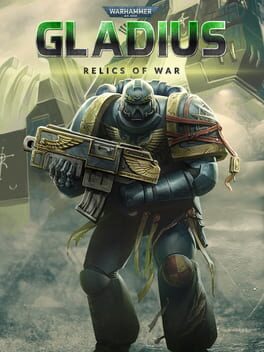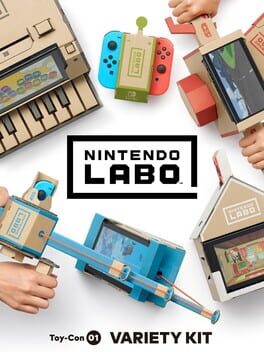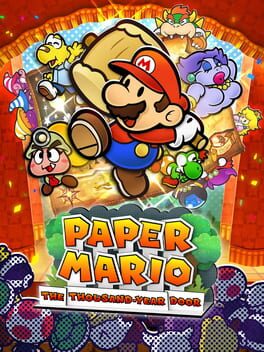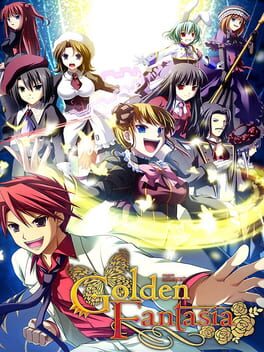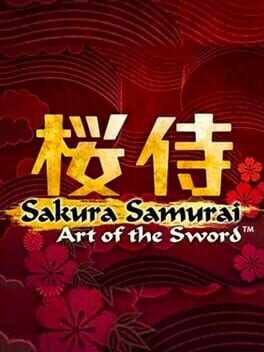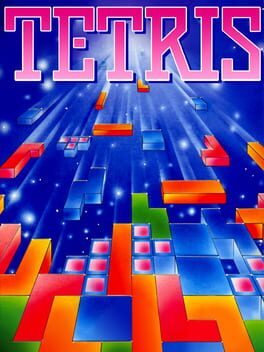FrozenRoy
13282 Reviews liked by FrozenRoy
Had no plans to review this despite my love for it but it's currently free to own permanently, for a full week at the time of writing so I'm obligated to shill. Sorry in advance.
It's an unspoken rule in my social circles that you shouldn't play 4x games with me, especially Civilization.
Why?
I like war. I consider it the sole reason to play these games. Managing an economy and production in such a way that it allows you to continue the maintenance of an ever-expanding warfront is always where I get most of my fun from, and honestly I think it's where the mechanics of 4x games really come together as a whole. Warfare is expensive, after all, and building to keep it afloat is honestly more engaging than building farms or whatever- God that makes me sound like a US politician.
But I grew tired of warfare in 4x games, Civ-likes especially. Past a certain point they're little more than "right click doomstack onto enemy until dead", forever. I longed for a game in this style that had more strategic depth to it, and ideally none of that cowardly shit like "turtling" or "pacifism". I wanted units that countered one another in a vicious cycle, and factions that felt meaningfully different beyond having passives like "The French enforced unfair amounts of debt on Haiti when they revolted agains French rule" or "The English get +2 to xenophobia" alongside maybe one different unit.
Gladius was the answer to that prayer.
On the surface this game isn't very appealing. To put it bluntly: Gladius is an ugly game. The UI is straightforward and no-frills, the music doesn't ever peak above "serviceable", the models are straight forward and lo-fi in not particularly eye-catching ways, and the terrain looks fairly uninteresting regardless of place. This is the brownest game to come out of the 2010s, somehow.
The onboarding process isn't much better, not doing much besides giving you a basic overview of the controls and telling you how to attack. If you let your Civ instincts kick in, you're almost certainly going to get killed by the trash mobs rather than any enemy players. I have personally sat in voice chat and watched as people get washed by trying to play this like Civ 6.
Gladius is not Civ, nor is it Endless Legend or Humankind or whatever Civ-likes the youth enjoy these days.
The big difference, I feel, is in the units.
Every Gladius faction has their own unique units, but there's ultimately not that many of them and you don't always unlock straight up "better" units. Each unit comes with inherent traits, but also weapons which have their own traits as well as accuracy/armor piercing/etc stats. Starter units tend to be all-rounders, but later ones are more specialized.
In contrast to Civ, Endless Legend or even Age of Wonder, units don't often become redundant in Gladius. Indeed, 'science' in this game is little more than unlocking more units and more abilities for units.
It's these extra abilities that add a lot to the tactical nature of combat. Take the standard Space Marine unit - the Tactical Marine - for example. They're not very flashy, having nothing more than their Bolter for combat, but research gives them several grenade types that let them hold their own against armored units, vehicles, or monstrous units.
Similarly, the design of the game is such that there's an ever-growing chain of counters to consider. It may seem alluring to ignore 'trash' units and field tons of tanks and uber units, but they can so easily be felled by focus fire, anti-armor auxiliary abilities, and flanking.
Ah, the morale system. Combat's most important addition.
Gladius uses the standard grid-based system of Civ and its imitators, and naturally this means units occupy one tile each while being unable to share tiles. The map generation is scarily good at creating chokepoints, dense foliage/ruins that obscure sight, and advantageous terrain. If units are flanked, lose too many allies in a single turn, or take attacks they can't retaliate against, they'll eventually start to crack. At first they'll simply take a minor stat penalty, but this eventually snowballs until they're taking obscene damage and dealing paltry damage.
More than any game of its kind, I feel, Gladius deeply incentivizes the need to have a solid frontline, but also some support. It may seem sensible to bundle your units up, but it only takes one teleporting/jetpacking/longjumping unit to break that formation and start draining your morale.
Terrain and engagement become more meaningful. Cliffs confer an incredible advantage against melee units, city ruins and trees interrupt the accuracy and effectiveness of long range units, and while Space Marines can attack from two tiles away, they get a bonus for being up close which necessitates a moderate amount of risk-taking - to name one example of how traits dictate fights.
Hero units are also present and while they're not quite ultra demi-gods who can solo entire armies, they provide enough buffs and offensive edge that slotting them into your formations becomes a game unto itself. They can level up alongside your trash unit, but you get to pick perks for them. These perks are, honestly, I'd say the only part of the game on a design level that kinda sucks; there's always an ideal route to take them and a lot of are just outright doodoo. Fortunately, heroes aren't mandatory, so I don't hate this too much.
I'm not gonna go through every faction's gameplan, unique traits, and design philosophy. There's way too many of them, and nothing is shared. Even the Chaos Space Marines diverge from their brethren significantly.
By now I assume you've looked at the store page and seen the enormous amount of DLC. Let's chat about that.
Is any of it mandatory? No. Proxy Studios keep their game meticulously balanced, with patches every few weeks. Gladius is perfectly playable without any DLC, and for the longest time I didn't own anything besides the Chaos Space Marine DLC.
But it is substantial. Those packs add a lot of options to each race, and paradoxically their value diminishes the less races you have. The latest unit pack, released alongside the free-to-claim weekend, has 11 units but 7 are inaccessible if you own no DLC. These aren't P2W unit packs, but the units do offer new tactical avenues that make for more interesting gameplay. To tie both topics together: In the latest pack, and after 6 years of existence, Assault Marines (teleporting melee) finally got an upgrade in the form of Assault Terminators, which is huge for the survivability of what're usually disposable shock units.
Personally, I'd just buy whatever tickles your fancy. I'm a crazy person and one of this game's strongest shooters, so I have all of it.
Gladius isn't an easy game to love, and I wager 90% of people who try it will bounce off because it's very aggressively not like other 4x games. If you can stick with it, though, it provides a uniquely rewarding experience. Plus, for some arcane reason, it refuses to die. It gets two DLCs a year and it's lasted six entire years with Proxy promising to keep going.
It's an unspoken rule in my social circles that you shouldn't play 4x games with me, especially Civilization.
Why?
I like war. I consider it the sole reason to play these games. Managing an economy and production in such a way that it allows you to continue the maintenance of an ever-expanding warfront is always where I get most of my fun from, and honestly I think it's where the mechanics of 4x games really come together as a whole. Warfare is expensive, after all, and building to keep it afloat is honestly more engaging than building farms or whatever- God that makes me sound like a US politician.
But I grew tired of warfare in 4x games, Civ-likes especially. Past a certain point they're little more than "right click doomstack onto enemy until dead", forever. I longed for a game in this style that had more strategic depth to it, and ideally none of that cowardly shit like "turtling" or "pacifism". I wanted units that countered one another in a vicious cycle, and factions that felt meaningfully different beyond having passives like "The French enforced unfair amounts of debt on Haiti when they revolted agains French rule" or "The English get +2 to xenophobia" alongside maybe one different unit.
Gladius was the answer to that prayer.
On the surface this game isn't very appealing. To put it bluntly: Gladius is an ugly game. The UI is straightforward and no-frills, the music doesn't ever peak above "serviceable", the models are straight forward and lo-fi in not particularly eye-catching ways, and the terrain looks fairly uninteresting regardless of place. This is the brownest game to come out of the 2010s, somehow.
The onboarding process isn't much better, not doing much besides giving you a basic overview of the controls and telling you how to attack. If you let your Civ instincts kick in, you're almost certainly going to get killed by the trash mobs rather than any enemy players. I have personally sat in voice chat and watched as people get washed by trying to play this like Civ 6.
Gladius is not Civ, nor is it Endless Legend or Humankind or whatever Civ-likes the youth enjoy these days.
The big difference, I feel, is in the units.
Every Gladius faction has their own unique units, but there's ultimately not that many of them and you don't always unlock straight up "better" units. Each unit comes with inherent traits, but also weapons which have their own traits as well as accuracy/armor piercing/etc stats. Starter units tend to be all-rounders, but later ones are more specialized.
In contrast to Civ, Endless Legend or even Age of Wonder, units don't often become redundant in Gladius. Indeed, 'science' in this game is little more than unlocking more units and more abilities for units.
It's these extra abilities that add a lot to the tactical nature of combat. Take the standard Space Marine unit - the Tactical Marine - for example. They're not very flashy, having nothing more than their Bolter for combat, but research gives them several grenade types that let them hold their own against armored units, vehicles, or monstrous units.
Similarly, the design of the game is such that there's an ever-growing chain of counters to consider. It may seem alluring to ignore 'trash' units and field tons of tanks and uber units, but they can so easily be felled by focus fire, anti-armor auxiliary abilities, and flanking.
Ah, the morale system. Combat's most important addition.
Gladius uses the standard grid-based system of Civ and its imitators, and naturally this means units occupy one tile each while being unable to share tiles. The map generation is scarily good at creating chokepoints, dense foliage/ruins that obscure sight, and advantageous terrain. If units are flanked, lose too many allies in a single turn, or take attacks they can't retaliate against, they'll eventually start to crack. At first they'll simply take a minor stat penalty, but this eventually snowballs until they're taking obscene damage and dealing paltry damage.
More than any game of its kind, I feel, Gladius deeply incentivizes the need to have a solid frontline, but also some support. It may seem sensible to bundle your units up, but it only takes one teleporting/jetpacking/longjumping unit to break that formation and start draining your morale.
Terrain and engagement become more meaningful. Cliffs confer an incredible advantage against melee units, city ruins and trees interrupt the accuracy and effectiveness of long range units, and while Space Marines can attack from two tiles away, they get a bonus for being up close which necessitates a moderate amount of risk-taking - to name one example of how traits dictate fights.
Hero units are also present and while they're not quite ultra demi-gods who can solo entire armies, they provide enough buffs and offensive edge that slotting them into your formations becomes a game unto itself. They can level up alongside your trash unit, but you get to pick perks for them. These perks are, honestly, I'd say the only part of the game on a design level that kinda sucks; there's always an ideal route to take them and a lot of are just outright doodoo. Fortunately, heroes aren't mandatory, so I don't hate this too much.
I'm not gonna go through every faction's gameplan, unique traits, and design philosophy. There's way too many of them, and nothing is shared. Even the Chaos Space Marines diverge from their brethren significantly.
By now I assume you've looked at the store page and seen the enormous amount of DLC. Let's chat about that.
Is any of it mandatory? No. Proxy Studios keep their game meticulously balanced, with patches every few weeks. Gladius is perfectly playable without any DLC, and for the longest time I didn't own anything besides the Chaos Space Marine DLC.
But it is substantial. Those packs add a lot of options to each race, and paradoxically their value diminishes the less races you have. The latest unit pack, released alongside the free-to-claim weekend, has 11 units but 7 are inaccessible if you own no DLC. These aren't P2W unit packs, but the units do offer new tactical avenues that make for more interesting gameplay. To tie both topics together: In the latest pack, and after 6 years of existence, Assault Marines (teleporting melee) finally got an upgrade in the form of Assault Terminators, which is huge for the survivability of what're usually disposable shock units.
Personally, I'd just buy whatever tickles your fancy. I'm a crazy person and one of this game's strongest shooters, so I have all of it.
Gladius isn't an easy game to love, and I wager 90% of people who try it will bounce off because it's very aggressively not like other 4x games. If you can stick with it, though, it provides a uniquely rewarding experience. Plus, for some arcane reason, it refuses to die. It gets two DLCs a year and it's lasted six entire years with Proxy promising to keep going.
The Super Mario series sits at the throne of platformers, both 2D and 3D. However, it arguably hasn't earned its place at the peak of 2D platforming since Super Mario World released over 30 years ago, with roughly half of the time since spent without a new 2D entry outside of Land 2 on the Gameboy. That's frankly an insane amount of time, and when we finally did get a new entry in New Super Mario Bros., the next decade-and-a-half was spent on uncreative iterations of that game. The New subseries is generally good on its own terms, but is it good enough to represent THE 2D platforming series for a massive portion of its existence? Absolutely not.
In comes Super Mario Bros. Wonder to finally advance beyond New. It's still very much a follow-up to New and features a lot of design and mechanical commonalities, but where New was lacking in style, soul, and creative joy, Wonder features these in abundance. Each stage feels fine tuned and filled with intent, with the 'wonder effects' supported by tailor-made music and visuals which cohere beautifully. Both music and sound are designed and integrated with obsessive precision, allowing Wonder to serve as another example of Nintendo's development teams just being on a whole other level on those fronts.
As much as their business practices frustrate, Nintendo clearly regards its brand image as central to its success, and thankfully producing generational masterpieces is part of that image. For a while they seemed happy to allow the 3D entries to soak up the prestige, with 3D World outdoing 2D Super Mario at its own game, but no longer. Super Mario Bros. Wonder is the finest 2D Super Mario since at least World and is arguably even better. Shiro Mouri and his team deserve massive credit for what they've achieved here, especially with this being Mouri's first time as director for a new game. It's a magical platformer, and I'm eager to see what the public is able to do with it in the the next Mario Maker.
In comes Super Mario Bros. Wonder to finally advance beyond New. It's still very much a follow-up to New and features a lot of design and mechanical commonalities, but where New was lacking in style, soul, and creative joy, Wonder features these in abundance. Each stage feels fine tuned and filled with intent, with the 'wonder effects' supported by tailor-made music and visuals which cohere beautifully. Both music and sound are designed and integrated with obsessive precision, allowing Wonder to serve as another example of Nintendo's development teams just being on a whole other level on those fronts.
As much as their business practices frustrate, Nintendo clearly regards its brand image as central to its success, and thankfully producing generational masterpieces is part of that image. For a while they seemed happy to allow the 3D entries to soak up the prestige, with 3D World outdoing 2D Super Mario at its own game, but no longer. Super Mario Bros. Wonder is the finest 2D Super Mario since at least World and is arguably even better. Shiro Mouri and his team deserve massive credit for what they've achieved here, especially with this being Mouri's first time as director for a new game. It's a magical platformer, and I'm eager to see what the public is able to do with it in the the next Mario Maker.
Animal Well
2024
There's a lot I could shotgun blabber about how much I adore Animal Well, but I think what's personally flooring me is Billy Basso's fluency in video game language here.
Back when I was a kid I developed an ironic phobia of computer programs acting on their own, and it manifested itself into a hilarious curiosity for games that really screw with player expectations and UI affordances - DDLC, Pony Island, etc. Very few seem to really convey that a jumpscare isn't the thing that's deeply unsettling; it's that gap between expectation of a game's rules and, by extension, the apparent limits. A game has a framework with discrete inputs, display elements, and sound effects, so to knock the framework down is a good "scare" and one that begs the player to wonder what else could happen. But to keep it going the length of a narrative requires deeper understanding of a player's mind once they're on the defensive, the ability to pace the novelties neither too slow nor fast, and the chops to keep that story memorable past a string of funhouse tricks.
Animal Well does it. It's not just that it's a fun puzzle game - I adore it because it's a puzzle game juxtaposing the jaw-drop when an item's depth becomes apparent against horror elements; a pixel art backdrop with worms that have two-sprite animations and bloop sound effects against a smoothly-animated, human-moaning death machine; simple controls and Metroidvania platformer gameplay against ever-increasing gameplay dimensions in a game smaller than many DS cartridges that has to have exhausted everything at this point to a home stretch. Right? No.
I think Basso gets that the childlike wonder we chase in video games is often unsaid, in our heads, or between the CRT scanlines. In his first attempt to show us this, he beautifully said it in pure mechanics rather than through a lick of traditional dialogue. I love it, and I'm gonna devour anything he puts out next.
Back when I was a kid I developed an ironic phobia of computer programs acting on their own, and it manifested itself into a hilarious curiosity for games that really screw with player expectations and UI affordances - DDLC, Pony Island, etc. Very few seem to really convey that a jumpscare isn't the thing that's deeply unsettling; it's that gap between expectation of a game's rules and, by extension, the apparent limits. A game has a framework with discrete inputs, display elements, and sound effects, so to knock the framework down is a good "scare" and one that begs the player to wonder what else could happen. But to keep it going the length of a narrative requires deeper understanding of a player's mind once they're on the defensive, the ability to pace the novelties neither too slow nor fast, and the chops to keep that story memorable past a string of funhouse tricks.
Animal Well does it. It's not just that it's a fun puzzle game - I adore it because it's a puzzle game juxtaposing the jaw-drop when an item's depth becomes apparent against horror elements; a pixel art backdrop with worms that have two-sprite animations and bloop sound effects against a smoothly-animated, human-moaning death machine; simple controls and Metroidvania platformer gameplay against ever-increasing gameplay dimensions in a game smaller than many DS cartridges that has to have exhausted everything at this point to a home stretch. Right? No.
I think Basso gets that the childlike wonder we chase in video games is often unsaid, in our heads, or between the CRT scanlines. In his first attempt to show us this, he beautifully said it in pure mechanics rather than through a lick of traditional dialogue. I love it, and I'm gonna devour anything he puts out next.
The half frame rate is noticible and I won't lie: it doesn't feel as snappy as hell because of it. Dialogue speed isn't an issue since I can be a real slow reader at the times, but for fast reader it can be slightly tedious.
Beside that: this is a mr. remake alright in every way you can see it and hear it: graphics and soundtracks are completely new for the occasion, don't listen to those idiots that treat this like it's a 60 dollars cash-grab low-effort remaster, because that's bullshit.
Beside that: this is a mr. remake alright in every way you can see it and hear it: graphics and soundtracks are completely new for the occasion, don't listen to those idiots that treat this like it's a 60 dollars cash-grab low-effort remaster, because that's bullshit.
I thought this game was pretty cool and liked how so much of it was steeped in the Japanese setting. The different locations were really neat, especially when I noticed that the world map lined up with how each level looked. It was a little hard to get used to the rigid nature of some of the combat, though, and that was my biggest problem with the game.
Full review here (Dutch): https://www.budgetgaming.nl/game-review/paper+mario:+the+thousand+year+door_switch.html
Paper Mario: The Thousand-Year Door has earned its legendary status within the RPG genre for good reason. Even after twenty years, the gameplay remains rock-solid, and the additions of the partner wheel, a Dutch language option, and the visual enhancements are warmly welcomed. It is unfortunate that the game's framerate has been halved, diminishing the splendor of the animations, but this does not detract from the overall enjoyment. The Thousand-Year Door was a must-play twenty years ago, and it still is today.
Paper Mario: The Thousand-Year Door has earned its legendary status within the RPG genre for good reason. Even after twenty years, the gameplay remains rock-solid, and the additions of the partner wheel, a Dutch language option, and the visual enhancements are warmly welcomed. It is unfortunate that the game's framerate has been halved, diminishing the splendor of the animations, but this does not detract from the overall enjoyment. The Thousand-Year Door was a must-play twenty years ago, and it still is today.
booting up this remake for the first time felt like being a little kid during christmas again. paper mario the thousand year door is a game i have a very long history with. it was one of 3 console games that were in a set of the first home console games i ever owned alongside super mario sunshine and luigi's mansion which i got for my 4th birthday. afterwards, the thousand year door was my favorite game of all time for my whole life up until my late teens. in that time, i've played this game front to back upwards of 20 times with a few 100% runs sprinkled in there as well.
needless to say, i have a lot of history with this game and it's very special to me, so a remake like this is something i was going to keep my eye on, even as someone who's usually disappointed when a remake actually comes out. this time is different though. it feels like it harkens back to the super nintendo and playstation 1 days of when remakes actually cared about the art direction and intent of the originals, with the art direction finding a beautiful middle ground between the originals texture and sprite work and the papercraft aesthetics that were only hinted before on the gamecube but brought to life on the wii u and switch, and with that middle ground sitting very firmly closer to the original gamecube side. npcs are actually expressive this time around as well, making the world feel just a bit more vibrant and alive and i couldn't be happier. other than some indoor locations not having the best lighting and some screen rotations that were seamless in the original going to black screens instead i have absolutely no complaints about this game visually, especially when there's already 60 fps patches. audio wise might be a different story, though.
the music in this remake is redone, given a more "origami king" esque jazz band flare to it which i don't feel fits the game well at all. the soundtrack definitely leans into the more "boingy" sounding ost ttyd and super had and the redone ost is definitely better than the poor showings we got in trailers, but i still prefer the original soundtrack. there is a badge that restores the original soundtrack, but i've yet to test to see how it reacts to the new songs added for the remake and to be honest i'd really like to hear them this time around so someone else will have to let me know about that eventually lol.
even with its few minor flaws ttyd for the switch is a truly a masterful remake of a classic, and i can't wait to reexperience this cornerstone of my history with video games with this loving remake going forward. the new localization that makes things more accurate to the original while keeping much of the 2004 localization in tact alone makes me prefer this version until someone inevitably patches it back in to the original, but even beyond that they took a world near and dear to my heart and miraculously brought it back to life again more vibrant than ever and that is always going to be deeply special to me. this game is still a very entry level jrpg and the remake doesn't change that so i definitely can't recommend it to everybody, but to anyone who loves the mario series at all or wants to get into rpgs with baby steps this game, and especially this new version, is a must.
needless to say, i have a lot of history with this game and it's very special to me, so a remake like this is something i was going to keep my eye on, even as someone who's usually disappointed when a remake actually comes out. this time is different though. it feels like it harkens back to the super nintendo and playstation 1 days of when remakes actually cared about the art direction and intent of the originals, with the art direction finding a beautiful middle ground between the originals texture and sprite work and the papercraft aesthetics that were only hinted before on the gamecube but brought to life on the wii u and switch, and with that middle ground sitting very firmly closer to the original gamecube side. npcs are actually expressive this time around as well, making the world feel just a bit more vibrant and alive and i couldn't be happier. other than some indoor locations not having the best lighting and some screen rotations that were seamless in the original going to black screens instead i have absolutely no complaints about this game visually, especially when there's already 60 fps patches. audio wise might be a different story, though.
the music in this remake is redone, given a more "origami king" esque jazz band flare to it which i don't feel fits the game well at all. the soundtrack definitely leans into the more "boingy" sounding ost ttyd and super had and the redone ost is definitely better than the poor showings we got in trailers, but i still prefer the original soundtrack. there is a badge that restores the original soundtrack, but i've yet to test to see how it reacts to the new songs added for the remake and to be honest i'd really like to hear them this time around so someone else will have to let me know about that eventually lol.
even with its few minor flaws ttyd for the switch is a truly a masterful remake of a classic, and i can't wait to reexperience this cornerstone of my history with video games with this loving remake going forward. the new localization that makes things more accurate to the original while keeping much of the 2004 localization in tact alone makes me prefer this version until someone inevitably patches it back in to the original, but even beyond that they took a world near and dear to my heart and miraculously brought it back to life again more vibrant than ever and that is always going to be deeply special to me. this game is still a very entry level jrpg and the remake doesn't change that so i definitely can't recommend it to everybody, but to anyone who loves the mario series at all or wants to get into rpgs with baby steps this game, and especially this new version, is a must.
Tetris
1989
you know I would love to be banal and claim that the original tetris is the purest video game ever crafted (nay, "discovered" according to Mark Brown) and give it an instant 5 stars - and I agree that guideline and classic are different games entirely and serve separate niches but this isn't even the best tetris game on the game boy. DX gave it wallkicks, more modes, a save feature and goddamn color. If it weren't for the retroactive color palettes given to game boy games played on GBC handhelds it would be significantly inferior because its not controversial to say that human optical periphery parses color better than 2-bit patterns.
it's not even the quintissential classic tetris title because the competitive scene prefers NES tetris for its faster levels speeds beyond 20. (level 29 there, the "killscreen", is 4 times faster than level 19 in game boy tetris. yeah. it's equivalent is level fifteen. even lowly DAS players with their level 18 starts begin games at this version's fastest speed. wild.)
still, its the version bundled with tens of millions of DMGs and the first truly pop culture penetrating tetris title of its kind. its also still fundamentally classic tetris: punishingly hard piece drops, iconic themes, no 7-bag, no saved pieces, no ghost, no hard drop - ugh... yes it's "pure". and yes of course it entranced me for 40 hours to clear 9-5 B-type and get 280,000 A-type on a level 9 start to feel like a god: then I used a cheat code to get NES-equivalent level 15 speeds to humble myself down to a neanderthal and reacknowledge how superhuman pro classic tetris players are.
to reiterate: guideline (think tetris effect, tetris 99, probably every tetris you've played) is a completely different beast and you owe it to yourself to give the original a try. its unlike anything else. with little margin for error your tucks, spins and ballsy stacking during a line drought feel like out-of-body experiences. your fingers acts independently on your mind which is just spectating your subconscious progressively get elite and jamming virtual blocks together in a way that is so, so special.
I mean, duh.
it's not even the quintissential classic tetris title because the competitive scene prefers NES tetris for its faster levels speeds beyond 20. (level 29 there, the "killscreen", is 4 times faster than level 19 in game boy tetris. yeah. it's equivalent is level fifteen. even lowly DAS players with their level 18 starts begin games at this version's fastest speed. wild.)
still, its the version bundled with tens of millions of DMGs and the first truly pop culture penetrating tetris title of its kind. its also still fundamentally classic tetris: punishingly hard piece drops, iconic themes, no 7-bag, no saved pieces, no ghost, no hard drop - ugh... yes it's "pure". and yes of course it entranced me for 40 hours to clear 9-5 B-type and get 280,000 A-type on a level 9 start to feel like a god: then I used a cheat code to get NES-equivalent level 15 speeds to humble myself down to a neanderthal and reacknowledge how superhuman pro classic tetris players are.
to reiterate: guideline (think tetris effect, tetris 99, probably every tetris you've played) is a completely different beast and you owe it to yourself to give the original a try. its unlike anything else. with little margin for error your tucks, spins and ballsy stacking during a line drought feel like out-of-body experiences. your fingers acts independently on your mind which is just spectating your subconscious progressively get elite and jamming virtual blocks together in a way that is so, so special.
I mean, duh.
